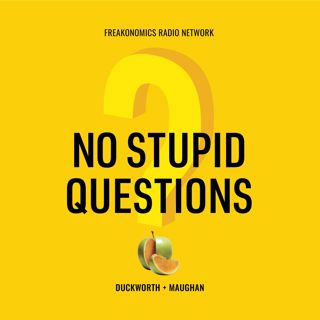Om avsnittet
Also: are the most memorable stories less likely to be true? Stephen Dubner chats with Angela Duckworth in this classic episode from July 2020. SOURCES:Pearl S. Buck, 20th-century American novelist.Jack Gallant, professor of neuroscience and psychology at the University of California, Berkeley.Steve Levitt, professor emeritus of economics at the University of Chicago, host of People I (Mostly) Admire, and co-author of the Freakonomics books.George Loewenstein, professor of economics and psychology at Carnegie Mellon University.Deborah Small, professor of marketing at Yale University.Adin Steinsaltz, rabbi, philosopher, and author.Diana Tamir, professor of neuroscience and psychology at Princeton University. RESOURCES:"The Representation of Semantic Information Across Human Cerebral Cortex During Listening Versus Reading Is Invariant to Stimulus Modality," by Fatma Deniz, Anwar O. Nunez-Elizalde, Alexander G. Huth and Jack L. Gallant (Journal of Neuroscience, 2019)."Reading Fiction and Reading Minds: The Role of Simulation in the Default Network," by Diana Tamir, Andrew B. Bricker, David Dodell-Feder, and Jason P. Mitchell (Social Cognitive and Affective Neuroscience, 2016).Think Like a Freak, by Stephen Dubner and Steve Levitt (2014).SuperFreakonomics, by Stephen Dubner and Steve Levitt (2009).Encyclopedia of Ethical Failure, by the Department of Defense (2009)."Stories or Statistics? Farmers' Attitudes Toward Messages in an Agricultural Safety Campaign," by S. E. Morgan, H. P. Cole, T. Struttmann, and L. Piercy (Journal of Agricultural Safety and Health, 2002)."Explaining the Identifiable Victim Effect," by Karen Jenni and George Loewenstein (Journal of Risk and Uncertainty, 1997)."Explanation-Based Decision Making: Effects of Memory Structure on Judgment," by N. Pennington and R. Hastie (Journal of Experimental Psychology: Learning, Memory, and Cognition, 1988).The Good Earth, by Pearl S. Buck (1931). EXTRAS:"Abortion and Crime, Revisited (Update)," by Freakonomics Radio (2022)."This Is Your Brain on Podcasts," by Freakonomics Radio (2016).

